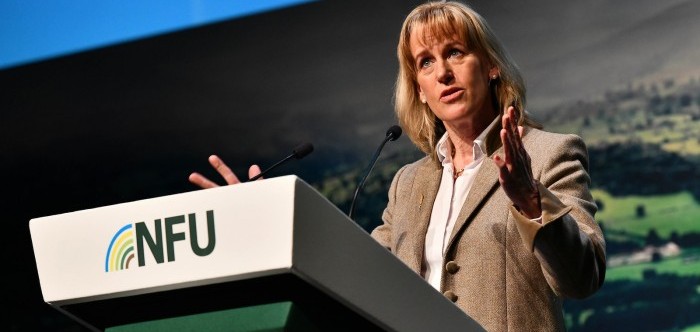The National Farmer’s Union (NFU) chief Minette Batters has accused Home Secretary Priti Patel of ‘repeatedly ignoring requests’ for meetings to discuss the ongoing workforce shortages in the farming industry.
Speaking to The House, Batters said it had been ‘impossible’ to meet with the Home Office to discuss the problem facing the industry.
The NFU president said she had been unable to meet with either the Home Secretary or the immigration minister despite having repeatedly requested meetings with both: “Either [it’s] no reply or it’s a list of reasons as to why they’re too busy to meet.”
Ms Batters did, however, note that the Cabinet Office minister Steve Barclay and Environment Secretary George Eustice had done a “huge amount” to help, but that being unable to meet with the Home Office remained a significant barrier.
“I think the lines in the Home Office around immigration are very tough,” Ms Batters added. “I understand completely that the British people voted to leave the EU and a lot of that was about immigration, but they didn’t vote to disadvantage themselves or to put others here out of business, let alone have a cull of healthy pigs.
“As with all things, finding a pragmatic solution, and meeting face-to-face and discussing these things through would be the biggest benefit at this time.”
Ms Batters also accused the Home Office being responsible for the ‘slow death’ of the pig industry, calling the Government’s approach a “state control type attitude” and that its their way or the highway: I feel it was a travesty to have the [pig cull issue] played out in front of the media.
“It is unforgivable really, we must as an industry be able to sort these things out. If they don’t want a pig sector here, if you don’t want to produce British pork, then they need to tell those pig farmers to get out of business.
“You cannot allow a sector to have a slow death.”
A government spokesperson responded to the claims, stating: “The Government engages extensively with the NFU about how best we can help the industry develop.
“The British public voted to reject the low-wage, high immigration model and transition to something new. Employers need to make long-term investments in the UK domestic workforce rather than relying on labour from abroad by offering training, career options, wage increases and investment.
“The food sector has received significant support – last year we expanded the Seasonal Workers Pilot to 30,000 visas for workers from across the globe to come to the UK for up to six months, and have announced more than 10,000 additional visas for HGV drivers and poultry workers.”




